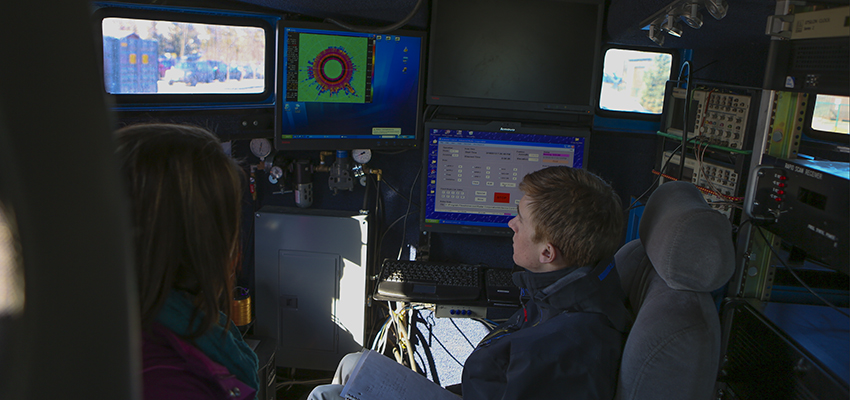
HWS News
12 February 2021 NSF Awards HWS $500K Grant to Study Lake-Effect Snow
The National Science Foundation will support Hobart and William Smith's atmospheric science research with a grant of more than $500,000, the second award of that size in the past year.
In April, Hobart and William Smith will begin a three-year National Science Foundation-funded research project that will result in the most expansive and comprehensive lake-effect snow database in existence for the Great Lakes.
The $514,733 NSF grant will support Professor of Geoscience Neil Laird (principal investigator), Associate Professor of Geoscience Nicholas Metz (co-principal investigator) and student researchers as they address lingering questions around the weather interactions that regularly impact lake-effect storms.
"Year after year, Professor Laird, Professor Metz and the students they mentor produce outstanding scholarship that is advancing the field and distinguishing Hobart and William Smith as a hub for atmospheric science," says Provost Mary L. Coffey. "We are thrilled to have the support of the National Science Foundation in continuing this valuable work and providing unparalleled educational opportunities for our students."
As Laird and Metz explain in their proposal, Lake-effect snowstorms have large impacts on people and communities in the Great Lakes region, as well as areas beyond the typical lake-effect snowbelts, and there remain several unanswered scientific questions regarding multi-scale interactions that regularly affect these storms.
Featuring a wide range of educational and training activities for students, the project will explore the relationship between lake-effect storms and varying jetstream wind patterns, while providing valuable insight into complex lake-effect weather systems that are difficult to forecast, as well as the snowfall produced by these storms. The research will also utilize lake-effect snowstorm observations previously collected during the Ontario Winter Lake-effect Systems (OWLeS) field project during the 2013-14 winter. Professors Laird and Metz helped plan the OWLeS field project and collected meteorological observations along with several HWS students using research weather radars, aircraft, and mobile weather-balloon profiling systems.
This latest grant follows another NSF grant announced in 2020, which provides more than $500,000 to support a four-year continuation of the Northeast Partnership for Atmospheric and Related Sciences (NEPARS), the HWS-led collaborative undergraduate research program.
